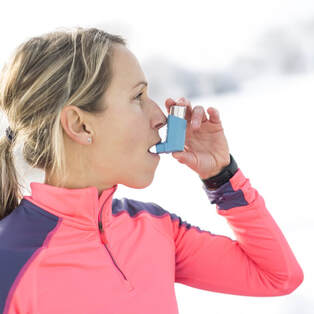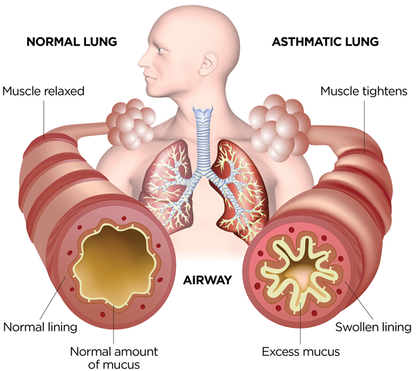 The short answer is NO, exercise can actually help to improve your asthma symptoms, so why has it got such a bad rap about making it worse? What is Asthma? Asthma is a life long condition that affects the airways, causing them to narrow. This can cause a number of symptoms to present, including but not limited too; coughing, wheezing, shortness of breath, breathlessness and chest tightness. Whilst Asthma is a lifelong condition it can usually be well managed with medication. Asthma is caused by triggers and there are a number of common ones that can cause asthmatics to have an Asthma Attack, causing severely narrowed airways and restricted breathing. Some common triggers can include;
Exercise Benefits?
Whilst exercise is important for overall health and well-being it also plays a crucial part in lung health as well. Engaging in regular exercise improves your lung capacity which increases the maximum amount of oxygen that your body is able to utilise. Not only this but exercise also increases blood flow around the body, in particular to your lungs and heart which promotes greater oxygen distribution throughout the body. What should I be aware of when exercising with Asthma?
What type of exercise should I be doing? No specific exercise is “off limits” for people with Asthma, although there are some exercises that will be more favorable to reduce symptoms exacerbation. Swimming is a fantastic exercise for Asthma sufferers as the air around them is moist and easier to breath but it also provides cardiovascular based exercise which promotes improved lung function, capacity and blood flow. Other exercises that are great options for asthma sufferers are walking, jogging, hiking, bike riding and general resistance-based training. Including a combination of cardiovascular and resistance-based training allows our tolerance and shortness of breath when exerting to improve through cardiovascular exercise whilst improving the strength and endurance of the muscles that assist us to breath can be improved through resistance training. If you would like any further information about exercising with Asthma, please get in touch at [email protected] or 8873 0628. By, Aleisha Michael Accredited Exercise Physiologist.
0 Comments
Your comment will be posted after it is approved.
Leave a Reply. |
AuthorSLisa Parkinson Archives
July 2024
Categories
All
|


 RSS Feed
RSS Feed